Deposy – the smart deposit return system based on IOTA
The strategy of Deposy – the deposit system based on IOTA – is to create added value for all stakeholders, i.e. the manufacturer, the distributor, the user and the recycler. Only in this way can we surpass the limitations of our current waste sorting systems. To this end, we have set up several mechanisms which have also been scientifically evaluated.

The incentive system is socially acceptable
From the scientific standpoint, incentive systems are of particular importance in the provision of additional services by the population. It is therefore one of the few effective instruments for achieving something. This is also the reason why the deposit system relies on the incentive effect. The deposit system relies on financial incentives for the collection and disposal of plastic waste. On the one hand, this financial incentive is to be generated by the value of the sorted plastic waste for the recycler. On the other hand, it should also be generated by the economic value of avoiding plastic waste and CO2, which would have to be rewarded by the government.
Product ID makes products smart
The Deposy product identity means that important characteristics of the product are safely stored on the tangle throughout its life cycle. Basically, a lot of information can be included. The product properties and the CO2 footprint of plastic are important for the system. The product properties ensure sorting by type in the vending machine. The machine recognizes the product composition and can sort the plastic part into the correct container. Furthermore, these properties enable the recycler to precisely record the composition of the individual plastic wastes afterwards. Products become smart products with the product identity.
Traceability is a feature that can help governments
The Deposy product identity is unique and is validated upon return of the deposit. This way a QR code can be used for paying out a deposit only once in each case, protecting the system from potential fraud of multiple deposit claims. The product ID, however, does not get lost after scanning and provides governments, planet protection foundations etc. reliable information about the plastic packaging. This is highly important now and will become increasingly important in the future. With the product ID for plastic packaging, we can enable authorities with a data source of plastic pollution, recycling quotas and much more.
CO2 footprint – added value for society
The scientific consensus is that achieving ambitious climate targets requires significant changes in product development and consumption. To understand the climate impact of products, companies need reliable information on the greenhouse gas emissions associated with their products throughout their lifecycle. Only with this information can the climate impact of the manufacture, use and disposal of products be effectively minimized. In addition, more and more consumers want to be informed about the climate effects of products and services.
The so-called Product Carbon Footprint (PCF) provides such information: The Deposy Product Carbon Footprint describes the amount of greenhouse gas emissions that had to be used to manufacture the plastic product. This clearly shows how much recycled material was used in the production process.